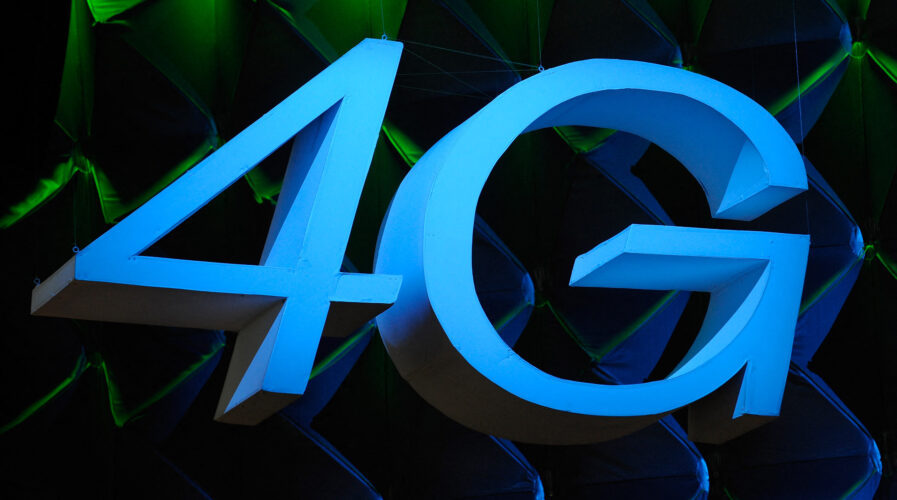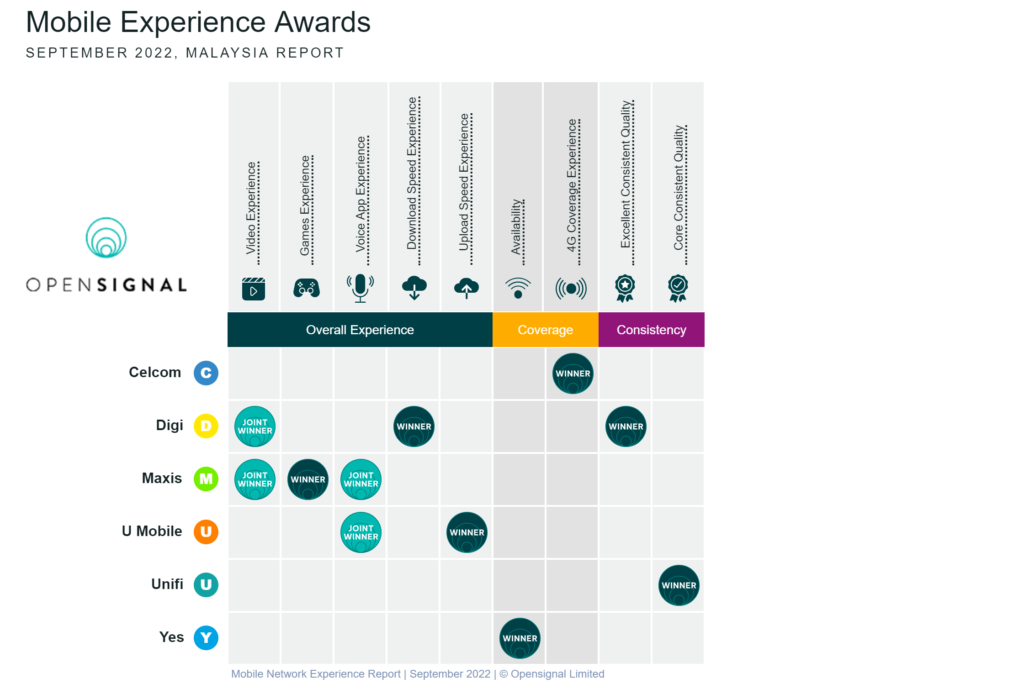
(Photo by Ethan Miller / GETTY IMAGES NORTH AMERICA / Getty Images via AFP)
As 5G deployment expands globally, Malaysian telcos rule 4G
- The OpenSignal reports highlight the strengths of the local telcos in delivering 4G services.
- Digi, Celcom, Maxis, Unifi win 4G categories for various 4G deliveries.
Malaysian telco companies have shown improvement in the latest OpenSignal report. However, most of the improvements are only in the delivery of 4G as the nation is still one of the slowest countries in Southeast Asia to deploy the 5G network.
According to OpenSignal’s Mobile Network Experience Report, while 5G still remains a key focus, the state of the network delivery is still relatively unknown as the country awaits confirmation if the remaining telcos will take up 5G services from Digital Nasional Berhad (DNB). Maxis and U Mobile have already declined the network while Celcom has started testing 5G with some customers.
It also remains to be seen if the merger of Celcom and Digi will have any impact on them taking up DNB’s offer. For now, as the new deadline is seemingly the end of September, it remains to be seen what exactly will happen should the telcos not go on with the offer from DNB. Previously, the government had announced that they would offer the network to other providers, including foreign ones if the local telcos continue to reject the offer.
For now, 4G will have to be the main network in the country. And as such, the OpenSignal reports highlight the strengths of the local telcos in delivering 4G services. Yes, Malaysian telcos are leading in 4G while telcos around the world compete for offering the best 5G services.
There was a time when even getting 4G connectivity was a challenge in some parts of Malaysia. In fact, it still can be challenging to get the network in some areas in the country.
Nevertheless, Digi users can boast to have the fastest average download speeds in Malaysia, with 20.5 Mbps. While Digi’s score was 1.3 Mbps (6.8%) higher than second-placed Maxis, the average gap between Digi and other national operators is much more significant — 65.1% to 137.7%.
Next, Celcom has a firm grip on the 4G coverage experience with an impressive score of 9.2 on a 10-point scale, ahead of Digi and Maxis’ identical scores of 8.6 points. Opensignal’s 4G Coverage Experience analyzes the locations where customers of a network operator received a 4G signal relative to the locations visited by users of all network operators. Given that 4G has been around for more than a decade, it only makes sense that Celcom should be dominating the experience.

(Source – OpenSignal)
Interestingly, when it comes to video experience, Maxis winds up sharing the top spot, this time with Digi. Malaysian users on Digi and Maxis enjoyed the best available quality of experience while streaming video over mobile connections, with statistically tied scores of 43.2-43.3 points (on a 100-point scale). U Mobile and Unifi were close behind, scoring 42.6 and 41.4, respectively. The Video Experience scores of these four operators place in the Fair category (40-55).
Maxis is still a winner though as it offers the best multiplayer mobile gaming experience while Unifi also wins the Core Consistent Quality award.
It seems while the rest of the developing countries compete to offer the best in 5G services, the Malaysian telco companies are still trying to make a mark in 4G. While there is nothing wrong with this, the reality is, if they don’t start offering 5G services soon, the country is going to be left behind.
While some may argue that the difference between 5G and 4G coverage and offerings may not be very different, the reality is, 5G enables a lot more use cases than 4G. And neighboring countries in the ASEAN region that have begun offering 5G services are already making the most of the network.
Malaysian telcos’ 4G services may have improved but offering 5G services should be the end game.
READ MORE
- 3 Steps to Successfully Automate Copilot for Microsoft 365 Implementation
- Trustworthy AI – the Promise of Enterprise-Friendly Generative Machine Learning with Dell and NVIDIA
- Strategies for Democratizing GenAI
- The criticality of endpoint management in cybersecurity and operations
- Ethical AI: The renewed importance of safeguarding data and customer privacy in Generative AI applications


